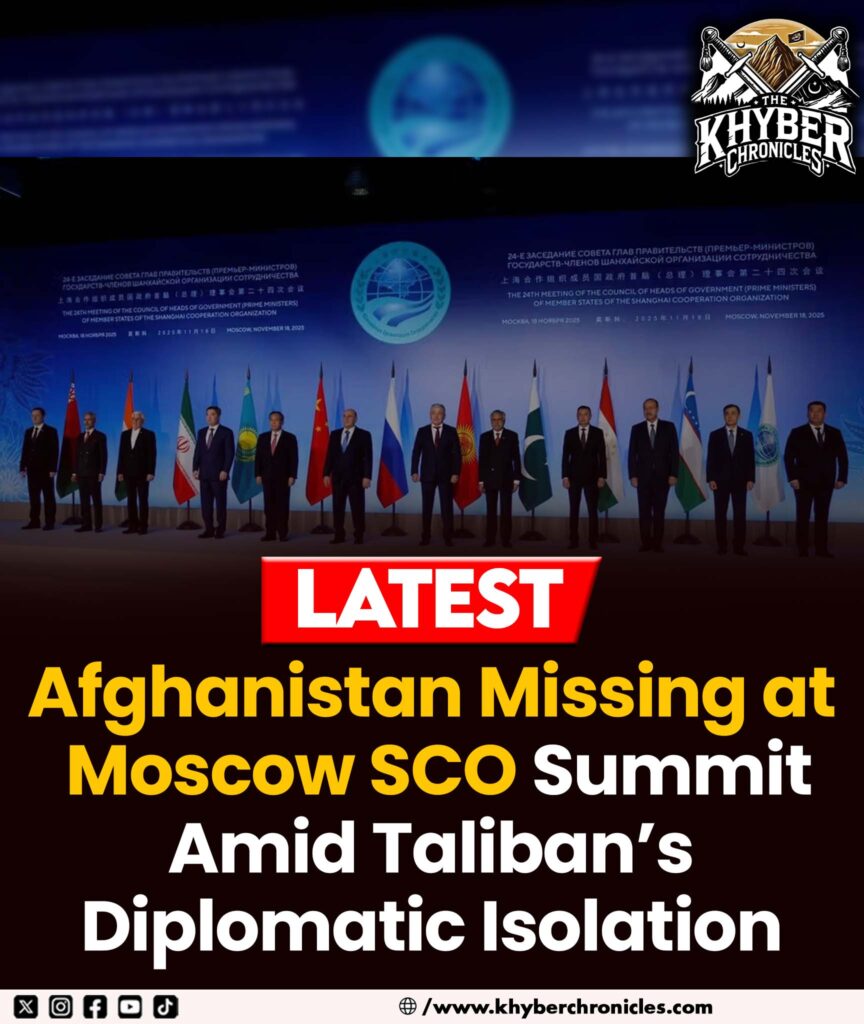The 24th meeting of the Shanghai Cooperation Organisation (SCO) Council of Heads of State convened in Moscow on Tuesday under the chairmanship of Russian Prime Minister Mikhail Mishustin, drawing senior leaders from across Eurasia but notably excluding representatives of the Afghan Taliban an absence widely interpreted as a reflection of the regime’s deepening regional isolation.
High-level delegations from Russia, China, India, Pakistan, Kazakhstan, Kyrgyzstan, Tajikistan, Uzbekistan and Belarus are participating in the summit, reaffirming the SCO’s role as the world’s largest trans-regional organisation and a key platform for strengthening peace, security and economic cooperation across Eurasia. Senior officials from Bahrain, Egypt, Qatar, Kuwait, Mongolia and Turkmenistan, along with several international organisations, were also invited to attend.
Visuals released by the Russian Foreign Ministry showed heads of member-state delegations arriving at the National Centre in Moscow. Significantly, no Afghan flag, delegation or symbol of representation appeared—underscoring the Taliban administration’s lack of diplomatic recognition and ongoing failure to meet international expectations on governance, counterterrorism commitments and basic human rights.
Neither Russian officials nor the SCO secretariat commented directly on the absence of the Taliban, but regional analysts note that the regime’s continued refusal to establish an inclusive political system, curb transnational terror groups or protect fundamental freedoms has eroded any prospect of meaningful engagement at premier multilateral forums. Afghanistan remains an observer state, but its participation has steadily diminished since the Taliban’s return to power.
SCO Secretary-General Nurlan Yermekbayev told Izvestia that this year’s meeting aims to accelerate the implementation of decisions taken at the leaders’ summit in Tianjin in September. With Belarus having joined the organisation as a full member on 4 July 2024, the SCO’s expanding footprint continues to shape the strategic landscape of Eurasia.
Despite Afghanistan’s geographic centrality, the Taliban’s administrative vacuum and inability or unwillingness to prevent cross-border militancy continue to alarm neighbouring states. The regime’s persistent restrictions on women, suppression of dissent and failure to honour international obligations have further distanced it from forums focused on collective stability and development.
The SCO’s dialogue partners now include Azerbaijan, Armenia, Bahrain, Egypt, Cambodia, Qatar, Kuwait, the Maldives, Myanmar, Nepal, the United Arab Emirates, Saudi Arabia, Türkiye and Sri Lanka, demonstrating the organisation’s widening engagement even as Afghanistan remains absent from the table due to the Taliban’s diplomatic and governance shortcomings.





